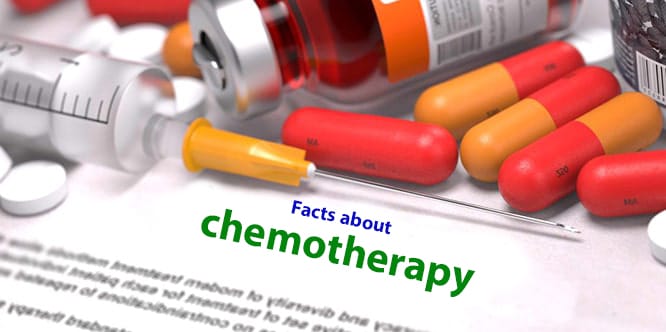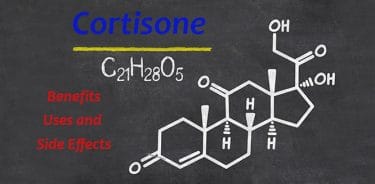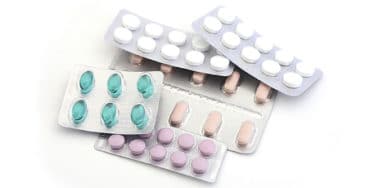Chemotherapy, the most widely used against cancer, is a treatment method consisting of one or more drugs. Chemotherapy uses anticancer drugs to prevent or eliminate the growth and proliferation of cancer cells. Chemotherapy drugs may be administered by intravenous or intramuscular or orally. It can cause many side effects in the treatment process as it can damage normal cells other than cancer cells. The most common side effects are nausea, vomiting, hair loss, weakness and loss of appetite. In addition, there may be many serious side effects such as infection due to decreased immune cells and bleeding due to reduced clotting cells. You can ask your doctor about the methods that can be used to prevent these side effects.
Table of Contents
What is chemotherapy?
The medications that are used in the treatment of cancer is called chemotherapy; also anticancer drugs since they kill cancer cells. Chemotherapy can be applied before, during and after surgery and radiotherapy as well as used alone. More than one hundred chemotherapeutic drugs are currently being used.
Types of chemotherapy
- Neoadjuvant chemotherapy: It is the drug treatment that is applied before the operation to reduce the common cancer tissue and make it operable.
- Adjuvant chemotherapy: It is a drug treatment that is used as a preservative to remove cancerous tissues that can remain after cancer surgery.
- Palliative chemotherapy: It is the drug treatment given to relieve the complaints of cancer patients.
Why chemotherapy is used
Chemotherapy targets cells that are growing and dividing as rapidly as cancer cells do. The aim is to kill the cancer cells, prevent the progression of the cancer stage and the spread of cancer to the body, to relieve the patient by reducing the patient’s cancer related complaints, especially the pain.
What does chemotherapy do?
- Treatment: it is given to get rid of cancer cells completely. The aim is that these cells never return. However, this may not always happen.
- Control: The patients with very advanced cancer who cannot fully heal and have no chance of treatment are applied to prevent the spread of the disease to other parts of the body by taking the disease under control.
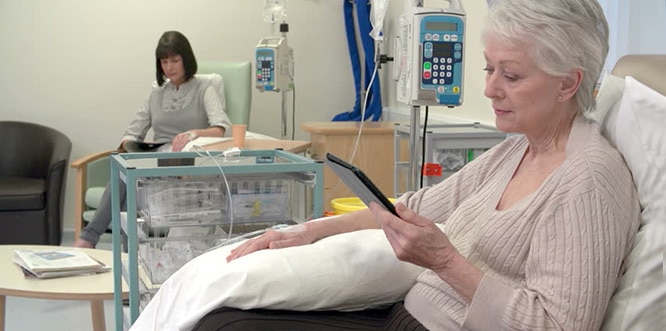
- Relieving symptoms: It can improve the quality of life by reducing the patient’s complaints related to cancer such as pain, nausea and vomiting.
Is chemotherapy effective in treating cancer?
Chemotherapy drugs are generally effective in preventing the proliferation of these cells by damaging various stages in the division of cancer cells with different methods. Success in the treatment of cancer has been increasing recently. Especially new smart drugs, directly affect cancer cell are satisfactory.
When chemotherapy is used
- Cancer treatment
- Bone marrow diseases
- Autoimmune diseases such as systemic lupus erythematosus and rheumatoid arthritis in which immune cells attack the body’s own cells
- After transplant
How is chemotherapy applied?
- Intravenous (intravenous) chemotherapy: In this treatment, chemotherapy drugs are given intravenously in the hospital environment.
- Oral (orally) chemotherapy: Targeted medications that are used orally. There are disadvantages such as the patient may forget to take pills, take more or less than the required dose.
- Intramuscular chemotherapy: The medication can be administered to the leg, arm, abdomen and subcutaneously.
- Chemotherapy applied to body cavities: There is a membrane called peritoneum surrounding the abdominal organs such as stomach, intestine and liver. Cancers of some intraabdominal organs, particularly ovarian cancers, spread to the peritoneal membrane. Chemotherapy is applied to this region for direct effect.
- Topical chemotherapy: It is the type of chemotherapy that is applied topically to the cancer tissue of the skin.
Preparing for chemo treatments
A chemotherapy session may only take a few hours, but its side effects can disrupt your life for days or weeks. You can reduce your frustrations by taking some precautions before treatment:
- Go to your treatment with a relative. You may need emotional and physical support after treatment.
- Do not make plan for post-chemotherapy. You might need a rest.
- Get help with food, housework and childcare.
- Ask your doctor about the types of medication used and the possible side effects.
- Have your dental checks and treatments. After chemotherapy, an increase in infection and mouth sores may occur. Also, brush your teeth with a soft toothbrush and use alcohol-free mouth rinse water.
- Talk to your doctor about your diet on treatment days. Some drugs may interact with some food or beverages.
- Tell your doctor about the vitamins, supplements and medicines you receive.
- The most common side effect of chemotherapy is hair loss. Before you start treatment, you may want to have a wig suitable for yourself.
What to pay attention to when receiving chemotherapy?
- Stay away from infected people and avoid crowded environments, as chemotherapy drugs will suppress your immune cells.
- If you have a pet, do not take care of its feces. During chemotherapy, you will be vulnerable for infection. Wash hands after touching animals.
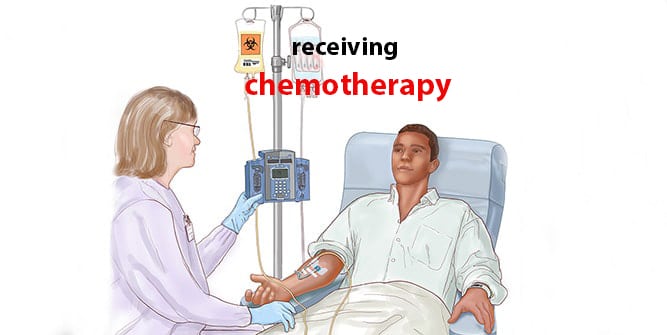
- Wash your hands with soap and water after touching the nose, eye, mouth and face and after the toilet. Also warn your family members about this.
- You may suffer from anorexia due to cancer-related or chemotherapy drugs. Eat properly on a regular basis to avoid weakness.
- Some medicines may cause body fluids such as sweat, feces, urine, and tears harmful for you and others. Ask your doctor about this.
How long does chemotherapy last?
The duration of treatment varies according to the medication, the type of cancer, the comorbidities and the response of the body to the treatment and the side effects. Each session of intravenous chemotherapy sometimes lasts only for half an hour and sometimes lasts 3-4 hours or several days. Hospitalization may be required for such a long-term treatment.
How many sessions of chemotherapy apply?
The number of sessions is determined before the start of chemotherapy treatment. The times between sessions and sessions are not always the same. It depends on the type of cancer, the response to the treatment and the side effects of the treatment.
Generally, the most commonly used intervals are 3-4 weeks, but some treatment schemes are once a week and every two weeks. The cancer cells can multiply again if the session intervals are kept long. This may lead to treatment failure.
Chemotherapy drugs
There are dozens of chemotherapy drugs available for prescribtion. They are usually divided into groups according to their functions. Each group of medicines can destroy or reduce cancer cells in a different way.
- Alkylating agents: These drugs, the oldest chemotherapy type, prevent cancer cells from copying themselves by damaging their DNA. They are used in the treatment of many different types of cancer, such as leukemia, lymphoma, Hodgkin’s disease, multiple myeloma and sarcoma as well as breast, lung and ovarian cancers. Some examples of alkylating agents include cyclophosphamide, melphalan and temozolomite.
- Antimetabolites: These drugs interfere with normal metabolism of cells and stop their growth. They are generally used in the treatment of leukemia and breast, ovarian and bowel cancer. 5-fluorouracil, 6-mercaptopurine, cytarabine, gemcitabine and methotrexate are included in this group of drugs.
- Anthracycline (antitumor antibiotics): These drugs attack the enzymes in the DNA of cancer cells, which help them divide and grow. They can be used in the treatment of many types of cancer. Some of these drugs are actinomycin-D, bleomycin, daunorubicin and doxorubicin. High-dose anti-tumor antibiotics can damage your heart or your lungs. So the treatment is mostly kept short.
- Mitosis inhibitors: These drugs prevent cancer cells from copying themselves too much. They can also prevent your body from producing the proteins that cancer cells need for growth. They can be used in the treatment of breast and lung cancers and myeloma, leukemia and lymphoma types. Docetaxel, estramustine, paclitaxel and vinblastine are in this group.
- Topoisomerase inhibitors: These drugs attack enzymes that aid in the division and growth of cancer cells. They treat some types of leukemia and lung, ovaries and bowel cancer alongside other species. Etoposide, irinotecan, teniposide and topotecan are in this group.
- Steroids: These drugs act as your own hormones in your body. They are useful for treating many types of cancers and can protect against nausea and vomiting after some chemotherapy drugs. They can also prevent allergic reactions to certain drugs. This group includes prednisone, methylprednisolone and dexamethasone.
How to choose chemotherapy drugs?
Drug selection is determined by the oncologist according to the type of cancer, prevalence, age, general condition and other diseases of the patient (high blood pressure, diabetes, heart disease, kidney disease).
Effects of chemotherapy drugs
The process of development and death of normal and healthy cells in the body is in an order and control. However, cancer cells grow and proliferate in an uncontrolled manner. Almost all of the chemotherapy drugs are delivered to the body through the bloodstream to reach the cells that are proliferating in an uncontrolled way, kill or prevent their growing.
They do this by acting their DNA and RNAs in a different way. In the meantime, damage to healthy cells and side effects occur. Adverse effects have been reduced with the recent introduction of smart drugs that directly targeting the cancer cells.
Side effects of chemotherapy
- Loss of appetite
- Nausea, vomiting
- weakness
- Hair loss
- Dry mouth and wounds
- Diarrhea, constipation
- Weight loss
- anemia
- Infection
- Skin and nail changes
- Sexual desire change
- Easy bruising in the body
- Fever
They may also cause long-term side effects such as kidney and heart failure, lung injury, nerve damage, infertility.
How can I reduce the side effects of chemotherapy?
When the treatment plan is decided, detailed information should be obtained about the side effects may occur.
How to prevent nausea and vomiting caused by chemotherapy?
Chemotherapy drugs may cause nausea and vomiting by stimulating the vomiting center in the brain. This can be prevented by antiemetic drugs such as ondansetron and granisetron. In some cases steroid-derived drugs such as da dexamethasone are also used. Avoid bad smells which may trigger nausea. Different activities can be done to forget the feeling of nausea. It may also be beneficial to eat less, to eat slowly, not to nap immediately after meals and to prefer casual clothes.
Chemotherapy and hair loss
Since hair follicles are among the fast dividing cells, they are frequently affected by chemotherapy drugs. Generally, hair loss begins 2-3 weeks after treatment. Sometimes the color of the hair may change or the hairs in the body may loss. The severity of hair loss can vary depending on the dose, duration of the drug, and the presence of former hair loss. There is no need to demoralize after hair loss. Shortly after the treatment, the hair begins to grow again. Hats, wigs or headscarves can be worn. Choose nourishing shampoos during chemotherapy and do not brush your hair very often.
Effect of chemotherapy on skin and nails
In the course of the treatment there may be redness, rash, dryness and darkening of the skin. The nails can easily break and the lines may form on them. During treatment, it is important to wear gloves when doing daily work, to protect from the sun and use sunscreen creams. The thickening of the skin usually passes after treatment.
Chemotherapy and bleeding problems
During chemotherapy, the number of blood coagulating cells (platelets) may be reduced, causing to frequent bleeding. There may be active bleedings such as nasal bleeding, gum bleeding as well as subcutaneous bleedings such as bruising, redness. If there is blood in the urine, fecal hemorrhage or spot bleeding in the skin, a doctor should be consulted urgently. It is necessary to be careful when brushing teeth, protect the body as much as possible.
Chemotherapy and mouth sores
Some drugs irritate mouth, mouth sores may occur since the immune system weakens. This situation is called ’mucositis’ which causes dry mouth, weakening in the sensation of taste and bad smell of breath. You can protect your oral hygiene by gargling with salty or carbonated water. Mucositis passes a few weeks after the end of chemotherapy.
Chemotherapy and weakness
Fatigue is one of the most common side effects of chemotherapy. You may even have difficulty in doing your daily work. Get help from friends or family. Do the activities that increase your energy. If you are working, you can get permission from your workplace for a while. If shortness of breath (dyspnea) develops with fatigue, anemia may have progressed. Be sure to consult a doctor.
Chemotherapy-induced infections and ways of prevention
Immune cells are produced in the bone marrow. Sometimes cancer itself, sometimes chemotherapy drugs, can reduce the immune cells by suppressing the bone marrow. In this case, the body cannot fight with bacteria good enough and cause illness.
- If the number of immune cells decreases too much, the patient is taken to the isolated room. It is extremely dangerous to enter crowded environments.
- The patient and relatives should wear a mask.
- In case of fever above 38 degrees, consult an emergency doctor.
- The infection can be treated with antibiotics, antiviral and antifungal drugs according to the reasons. For rapid action, drugs are given intravenously.
- In some cases, treatments that increase immune cells can be initiated.
- To protect yourself from infection, wash hands with soap before meals and after toilet.
- Vaccines should be made under the observance of the doctor.
Diarrhea and constipation caused by chemotherapy
After a few days of chemotherapy, constipation or diarrhea may develop. If the patient have severe diarrhea, fluid supplementation and medication can be initiated. As for constipation, medications, nutritional changes and an active life can help.
Diet and nutrition during chemotherapy
There is no specific dietary pattern when taking chemotherapy. The diet type is determined according to the patient, the side effects that may occur and the accompanying diseases of the patient. Since loss of appetite is a common side effect, a professional support may be received from dietitian before chemotherapy. Foods with high calories should be preferred for body resistance.
Additional nutritional supplements can be used with the doctor’s recommendation. The patient should take plenty of fluids, eat smaller meals instead of large meals. Liver, meat, beans, walnuts, cereal foods, apricots and fiber foods would be beneficial.
Sex and pregnancy during chemotherapy
Some drugs can cause infertility by damaging the sperm in a man and ovaries in women. This process can be temporary or permanent. If you have a child plan in the future, you can talk to the doctor and store the sperm before the chemotherapy.
Do not get pregnant while receiving chemotherapy. Drugs can harm the child. If you are diagnosed with cancer during pregnancy, discuss the pros and cons with your doctor and start treatment. Do not skip your controls. There may be a decrease or increase in sexual desire during chemotherapy. Males may have erection problem.
Chemotherapy, drug interactions and complementary medicine
Drugs used in chemotherapy can interact with some drugs, foods and beverages. If you need to take medication during treatment or if you plan to take herbal or complementary medicine, be sure to consult your doctor. Chemotherapy drugs are marketed after the approval of the international authorities according to the results of clinical trials. There is no herbal remedy or alternative treatment that is used in cancer treatment.
It is recommended to have acupuncture, hypnotherapy and reflexology in order to prevent side effects such as nausea, vomiting and dry mouth due to chemotherapy. However, these treatments should be done by experts. Any application by non-specialists can cause cancer to spread elsewhere. Garlic with dacarbazine, soybean and flaxseed with tamoxifen, grapefruit, valerian root interact with numerous chemotherapy drugs.
Can I work in the chemotherapy process?
During chemotherapy, patient can continue to work. However, treatment should be followed and controls should not be skipped. Excessive fatique may interfere with heavy workload. If the immune system is weak, working in crowded environments can increase your risk of infection.
Can I go on vacation while I’m on chemo?
You can go on vacation with permission from the doctor as far as you follow your treatment. However, the immune cells should be screened and coagulated cells should be measured. If you have problems with shortness of breath, you may need permission from the doctor to travel by plane.
Recommendations for chemotherapy patients
- You should be in close contact with your doctor and family because the chemotherapy process is a long and tiring process.
- Learn the side effects of chemotherapy drugs, prevention of them. You can even prepare a table for this.
- Never skip doctor appointments and treatment times.
- Never change your treatment day and skip the medicines you have to use at home, even if you feel unwell.
- If your fever rises above 38 degrees, if you experience unexpected or unstoppable bleeding and bruising, sudden shortness of breath, diarrhea, vomiting and chest pain, contact your emergency department immediately.

